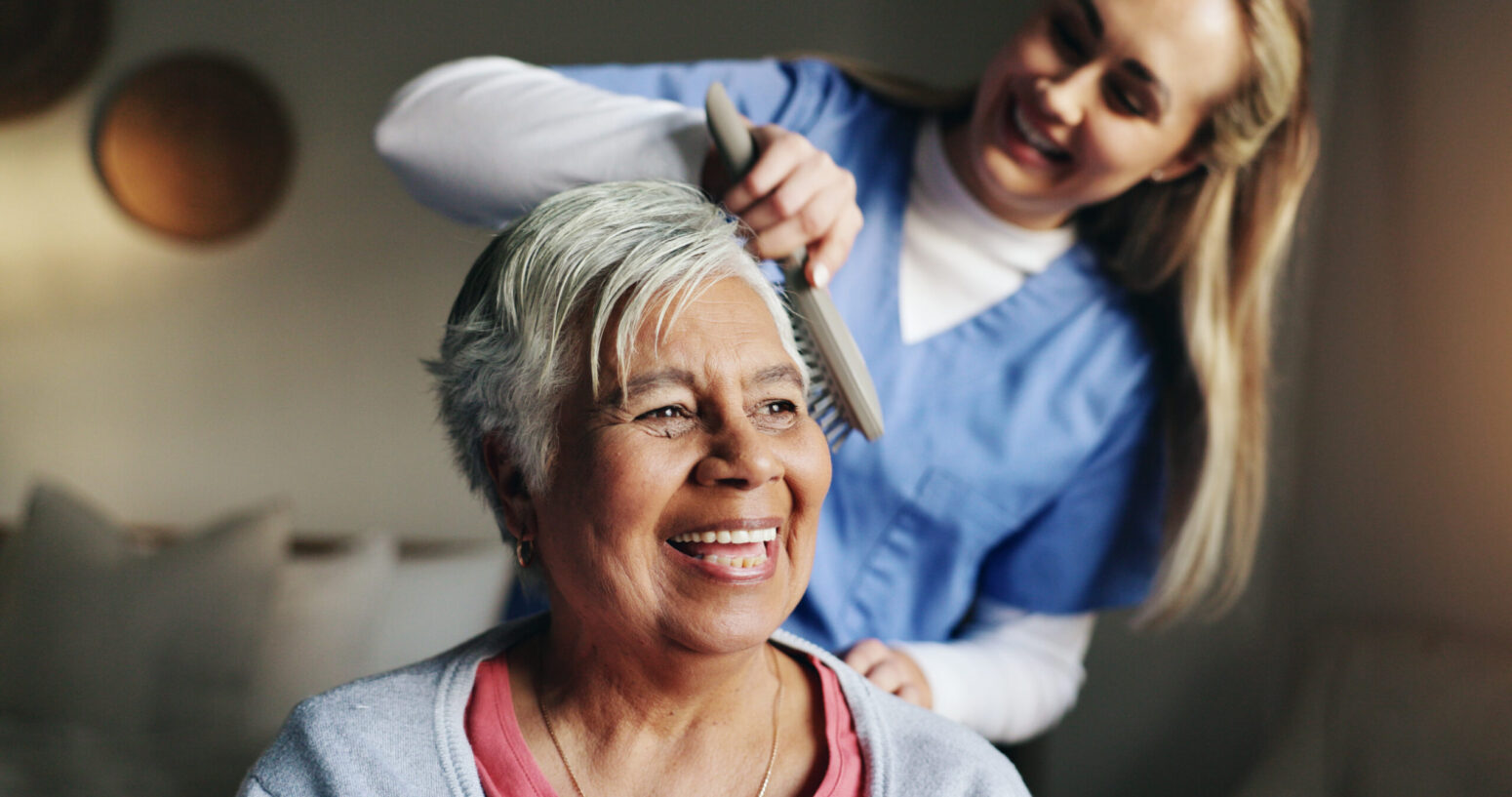
If you or your loved one needs home health care, either on a long- or short-term basis, a vital member of your care team will be a home health aide. The first home health aides worked during World War I, and since then, they’ve become essential for patients and their families.
Home health aides, sometimes also referred to as certified nursing assistants (CNA) or state-tested nurse aides (STNA), are healthcare workers who receive their training through a state-approved program, which includes both classroom instruction and practice caring for patients. Utilizing a care plan created with nursing to target specific needs, home health aides are key to the well-being and safety of those they care for.
Duties of a home health aide
Aside from providing basic care, home health aides may also help with:
- Bathing and dressing
- Eating and drinking
- Using the bathroom or a portable toilet
- Transferring between bed and wheelchair
- Using medical equipment such as lift chairs
And this list is just the beginning. These essential healthcare providers are a lifeline for many patients, giving them not only help with daily activities of living but also providing important companionship and other vital functions.
A familiar and friendly face
Many who receive home health care are unable to leave their home, and that can be incredibly lonely, especially if they live alone. Since home health aides spend a lot of time with their patients, they become familiar with their routine, lifestyle, and unique wants and needs. Often, that leads to a warm relationship. Aside from looking forward to the time they spend with their home health aide, forming a strong bond can also stave off mental health challenges that many older people experience.
A link to family
A home health aide can become an important connection between patients and their family members. If, for example, an emergency arises, a home health aide can help educate the family about how they should proceed, where they can go for help and what their next steps might be. Having this connection gives them peace of mind and an easy contact in a pinch.
Help for a clean environment
Because home health aides see their patients more often than nurses, therapists, and other home health professionals, they can keep a close eye on living conditions. In fact, according to Everynurse.org, home health aides are key to ensuring patients have a clean and infection-free environment in which to live and heal.
An equipment manager
For patients using oxygen tanks or other pieces of equipment, their home health aide will make sure it’s in good working order. They will also make sure to order replacement tanks when needed, so families don’t have to worry about it.
A watchful eye for diet
Many home health patients need to be very careful about the food they eat, for example, if they’re on a low-sodium diet. Home health aides make sure their patients are eating what they should be eating.
Traditions Health home health aides, when and where you need us
At Traditions Health, our home health aides are focused on the safety and well-being of every patient. They have the training to respond to emergencies, and the critical compassion, comfort, and support our patients and their families deserve.
Check out our Home Health page for more information.